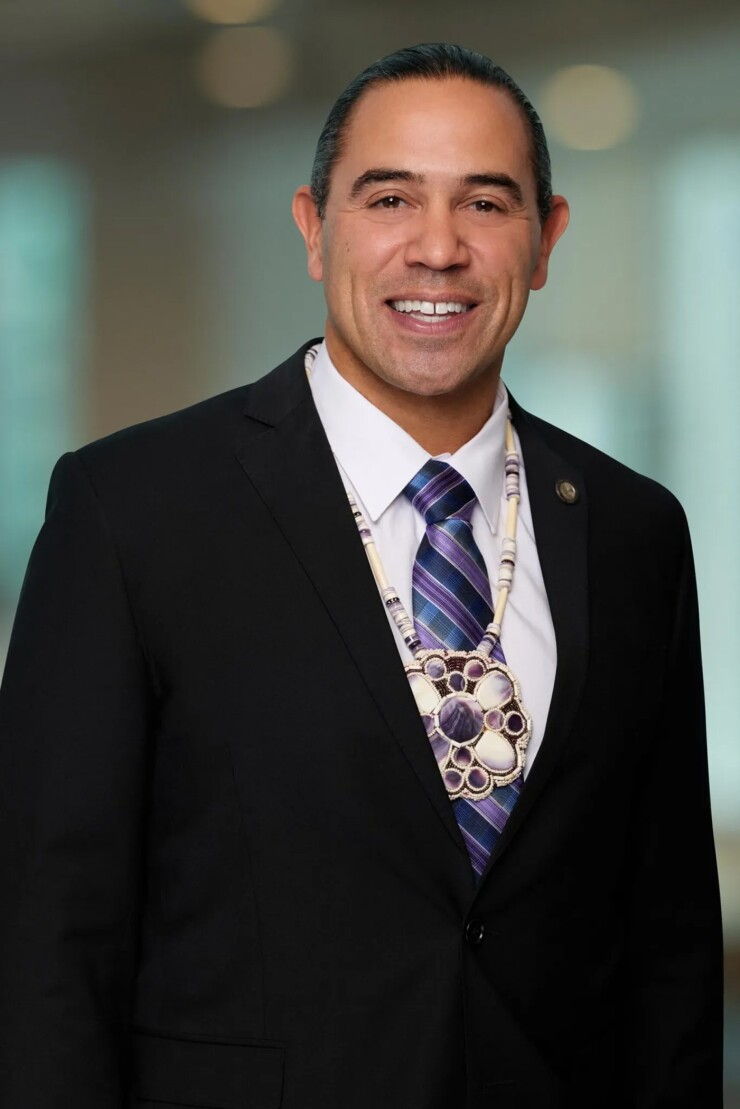
A bill that would level the taxation playing table for Native American tribes has been reintroduced in the Senate, reigniting hope that a long-standing snafu may finally get corrected.
"The introduction of the Tribal Tax and Investment Reform Act in the Senate is a necessary and overdue effort to modernize the federal tax code in recognition of Tribal sovereignty," said Rodney Butler, chairman of the Mashantucket Pequot Tribal Nation and board president of the NAFOA.
"It guarantees Tribal governments have equitable access to financial tools, including tax credits and housing incentives, needed to build strong self-determined economies."
The NAFOA was founded as the Native American Finance Officers Association and represents over 170 Tribal nations in more than 28 states.
The legislation is sponsored by Senators Catherine Cortez Masto D-Nev., a member of the Senate Committee on Indian Affairs, and Lisa Murkowski R-Alaska, who chairs the Committee.
"By allowing Tribal governments to make better use of housing tax credits, improve the ability to issue tax-exempt bonds and incentivize new investment incentives, we're opening the door for them to finance more infrastructure projects and promote job growth," said Sen. Murkowski.
The bill calls for repealing the "essential government function" test that has long vexed Tribes wishing to issue governmental bonds.
Unclear language in the existing tax code has been interpreted to mean that Tribes cannot issue private activity bonds for anything not considered an essential government function.
The bill also establishes PAB volume cap rules "to enable tribal governments to issue private activity bonds for economic development purposes, like state and local governments can."
Tapping Low-Income Housing Tax Credits would be made easier as the bill modifies the Internal Revenue Services' definition of a "difficult development area," which has been precluding efforts to develop housing on Tribal lands.
Other provisions in the bill deal with standardizing rules governing pensions, charities, child support, adoptions, welfare benefits, health service loans, and employment tax credits.
The bill also creates an annual $175 million New Markets Tax Credit for low-income Tribal communities and for projects that serve or employ Tribe members.
"Tribes in Nevada and across the country deserve access to the same tools as state and local governments to strengthen their communities and support their local businesses and services like health, housing, and education," said Sen. Cortez Masto.
"Our bill makes commonsense updates to the tax code to ensure fairness, create more good paying jobs, and keep more money in Indian Country."
The Tribes have been working on a similar bill in the House which was reintroduced by Representatives David Schweikert R - Ariz. and Gwen Moore D- Wisc., in May 2024.
The two bills have been bouncing around in Congress in various forms since the second Obama administration.
The tangled roots of the tax parity maze stretch back to long simmering treaty disputes between the Tribes and the federal government.
"The Tribal Tax and Investment Reform Act takes essential steps to align federal tax policy with Tribal sovereignty by addressing long-standing barriers to capital, workforce, and infrastructure development," said NAFOA executive director Cory Blankenship, Eastern Band of Cherokee Indians Member.
"As the legislation advances, NAFOA is committed to providing technical expertise that centers the realities of Tribal communities to support its passage."





